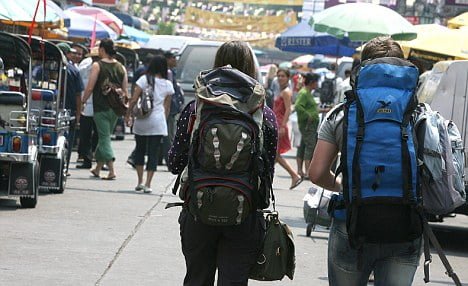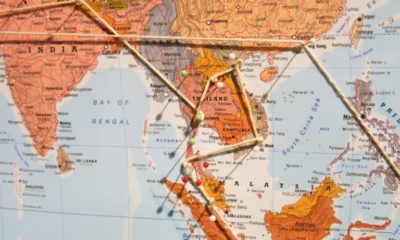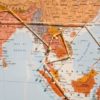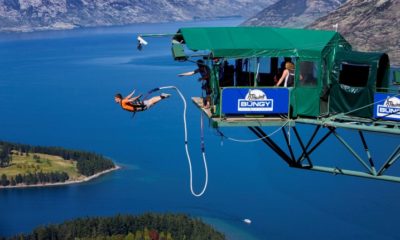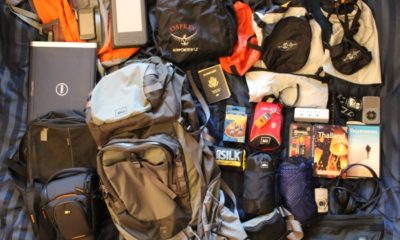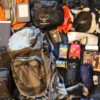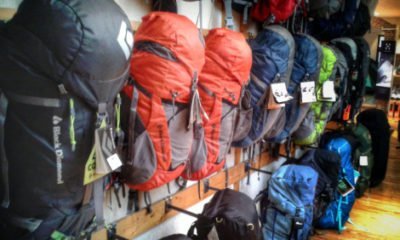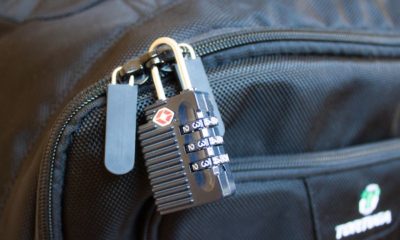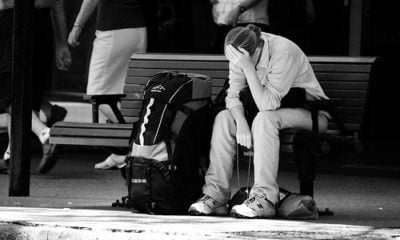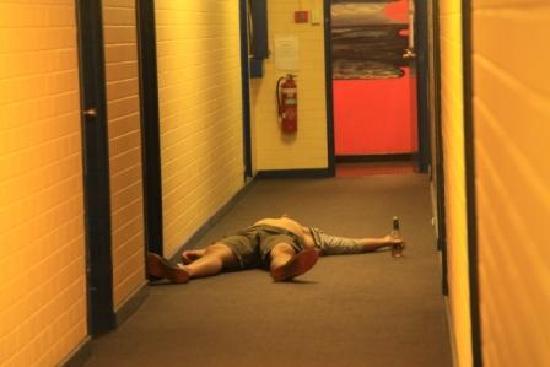What Happens When You Get There? How To Be A Backpacker
There is a reason they call it travelling – it is just as much about getting there as it is being there, and there are certainly a lot of options when it comes to transport.
How do you actually be a backpacker? How do you get by, find places to eat, stay in touch, keep your clothes clean, and get around when travelling? Below are some of the best tips I’ve picked up on my travels…
Getting Around
There is a reason they call it travelling – it is just as much about getting there as it is being there, and there are certainly a lot of options when it comes to transport.
Flying
You will certainly need to take a few flights on your trip. Use websites such as Skyscanner – they are great for comparing prices.
When booking consider your seat options; if you plan on sleeping get a window seat, if you are tall maybe get one with extra legroom.
Always check your flight details a few days before and confirm them with the airline, if you deem necessary. Get to the airport on time – trust me from personal experience – waiting 2 hours in a terminal is much better than rushing and panicking, whilst trying to make your flight.
You may also like to read our Airport and Flying Tips and How To Avoid Jet Lag.
Buses/ Trains
Similarly to flying – and any other method of transport for that matter – check the details before travel and confirm if necessary. There is nothing worse than a bus not turning up and then realising it’s your fault.
It is always a good idea to turn up early to ensure you get the right platform or stand. Check the departure board, or the front of the bus or train, before boarding and if necessary confirm with staff that it is going to your required destination. Make sure you know when your stop is and what time it arrives so you can be prepared to get off – they don’t wait around for long in some places.
You will be surprised the difference a few extra bucks can make – things like air conditioning, reclining seats and toilet facilities are certainly worth paying the extra money for, so shop around. Be cautious about sleeping on buses and trains, they are a breeding ground for opportunistic thieves, plus you may also miss your stop.
Read more here for Tips on Safety and Security While Travelling
Onward Transport
After you get to the airport or station you may possibly need onward transport. A large city airport will usually have some sort of mass transit system or shuttle bus to the city centre, which will be your best option almost everytime. Plan ahead online before arriving at an airport by finding the cheapest and quickest route to your accommodation.
The other two onward options are by taxi or on foot. From most airports it isn’t feasible to walk, but from a town station or bus stop it usually is. After a few weeks you will know exactly how long you can walk for with your pack on – choosing to walk may also depend on how tight you are with your money. Check on Google Maps how long it takes to walk to places before you get there – if it takes under 20 minutes, I will always walk it.
Don’t rule out a taxi though, particularly if there is a group of you going to one destination – this can make a taxi cheaper than public transport. Ensure the taxi is licensed and read up on the internet beforehand how much taxi fares should cost and which companies are trustworthy. If you know a guide price beforehand then you can agree on a amount with the driver, but if not always ask to go by the meter.
| Other Means Of Transport |
|---|
| Bicycle. Many people buy bikes and cycle epic journeys throughout their travels. You may want to try this for a certain leg of your trip.Boat/ Ferry/ Kayak. Getting to any small island will certainly require travelling by sea. You may also find going by sea is a lot cheaper than flying to certain places.
Camel/ Elephant/ Horse (depending on what continent you are on). Animals for transport are certainly an option, although probably more for the experience than speed. Car/ Motorbike/ Campervan. Renting or buying a vehicle is arguably the most enjoyable way to get around and gives you complete freedom. If you can muster up a group of people it shouldn’t be too expensive either. Read here for more about choosing a campervan Hitching. Places like New Zealand are perfect for hitchhikers. Other places however it may not be safe, heard of, or even legal, so do some research. Unless you want the adventure, it really isn’t worth hitch-hiking in developing countries as transport is so cheap. |
Accommodation
It’s a good idea (like everything) to plan where you are going to stay in advance. Read reviews on the internet or in a travel guide before arriving and note down the addresses of few places.
You may also want to book ahead – believe me arriving in a foreign town at 2am, then walking around with a heavy backpack on until 4am, trying to find a vacant place to sleep is not fun!
However I must admit going with the flow does add to the adventure and provides plenty of funny stories to look back on, so you should add to your adventure by not always booking ahead or by sleeping in different places.
On my travels I have slept in plenty of hostels, but many random places too, including a treehouse, swag, jail (a converted one, I wasn’t locked up), tribal hut and at sea, so keep an eye out for different options.
| Common Places To Stay The Night |
|---|
| B&B/ Guesthouse. A great rest bite from hostels; very cheap in developing countries and equally as cheap as hostels if there is more than one of you.Camping. Often free or very cheap and a great way to get in touch with the outdoors. Just make sure it is safe and legal to camp.
Couch Surfing. A relatively new concept; people let you sleep on their couch for free. Often people that provide this service are fellow travellers, and it is their way of returning a favour to someone else that accommodated them. Farmstay. Very common in Australia and New Zealand; work and live on a farm, with your rent and food included. Homestay. A cross between a farmstay and couch surfing. People will open their home to you; you will probably be charged or asked to help out with chores in return for the accommodation. It can be cheaper than hostels and a great way to meet locals. Hostels. The most common option and the best place to meet people. Hotels. An option if you want to treat yourself, but they will drain your budget. Rough. Book in advance to avoid sleeping rough, but you may find yourself wanting to sleep on the beach or at an airport to save money – just be sure it is safe to do so. |
Eating
In developed countries you should cook in your hostel; you save a lot of money over eating out.
Cooking in groups will save you even more money. When heading to a developed country find out the names of local supermarkets and their locations to avoid paying high prices at convenience stores. Make sure you label your food so it doesn’t get stolen or throw out. If you don’t like cooking or are sick of eating pasta, go on a tour – they often provide food; it usually isn’t too bad, and there is certainly plenty to go around.
In developing countries it is difficult to cook for yourself and part of the experience is to eat out.
Restaurants are usually cheap and they are great to go to with new found friends. Don’t be shy about going to a restaurant on your own though, it is a normal thing to do and you should become accustomed to it. The locals certainly won’t think you are a loner – they just want your money!
Street food isn’t as bad as government health websites make out. You often see the food cooked right there in front of you, so you know if it has been handle properly and cooked right. Some of the best and most unique flavours and foods come from street vendors.
In terms of food safety just use your instincts; if the place looks dirty, don’t eat there; if your food isn’t piping hot, don’t eat it. Read more about Water and Food Safety.
If you are really unsure about food safety at the local restaurants or just don’t like the local food, don’t be ashamed to visit a western fast food restaurant. Some people will say you are uncultured, but a McDonalds is very different in every country you visit – in Japan you can get a prawn burger; in India a lamb burger; rice instead of chips in Thailand and they even serve beer in large parts of Europe.
Washing
Personal hygiene and laundry are two subjects people want to discuss before going, but there really isn’t much to say as neither are as big of a deal as people imagine.
Your personal hygiene really shouldn’t differ too much from back home, however you will sweat a lot more when in the tropics. It goes without saying all hostels have showers – if you are worried about the hygiene of the showers themselves, try to be the first one up in the morning as they will have usually just been cleaned.
The only real problem in regards to your personal hygiene will be when camping or on long journeys. Prepare yourself and you will be fine – take a change of clothing, wash cloth and deodorant to freshen up.
Keeping your clothes clean is more of burden. It can be expensive and time consuming in developed countries. You have to swallow your pride sometimes and remember, no one will judge you on what you are wearing when you are travelling – you probably won’t be with the same people for more than a few days anyway – so don’t worry about wearing the same clothes for a few days in a row, or having a small stain – no one cares! If you are doing something sporty, don’t wear a clean top, wear one of your dirty ones – you might as well because it just going to get dirty anyway.
In developed countries keeping your clothes clean is a lot easier. Firstly it is very cheap to get them washed, and often someone will do the whole thing for you. Secondly clothes are often so cheap it is easier to just buy fresh new ones.
Staying In Touch
Like so many things with travelling, staying in touch is so much easier these days.
Almost every hostel will have computer access and/ or wifi. If staying in touch is important to you, then you should always try to stay in places with free internet.
The easiest, cheapest and best way to stay in touch is Skype, but you can also keep your friends updated via social media or by sending a long email to all the family. Read our Dealing with Homesickness article if you feel you may struggle with being away from home.
The internet is also a great way of keeping up with news and sport. Keep in mind that hundreds of people will be using the same computers in hostels or internet cafes, so ensure you log out of email and social media accounts and that password remembering is switched off.
You really shouldn’t be without internet for more than a few days, and most people feel very liberated and happy without it.
If the unthinkable happens and you can’t get internet for weeks, don’t panic! There are plenty of other ways to stay in touch. Buying a international sim card is the easiest option, alternatively a local sim card will mean you can use the network provided internet. Most hostels will provide international calls for a small fee, as will payphones. If all else fails there is good old fashioned snail mail – sending postcards is still a fantastic surprise for your friends and relatives.


